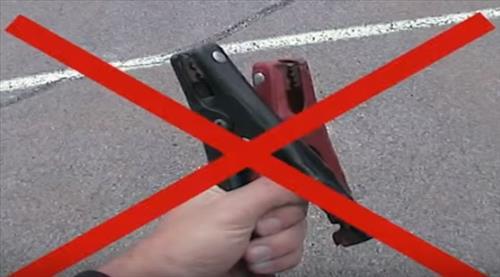Clashes break out at Greek anti-austerity rally in Athens – CBS News

CBS News Logo
Clashes break out at Greek anti-austerity rally in Athens
Riot policemen run after protesters throwing petrol bombs in central Athens, during an anti-austerity protest on July 15, 2015.
Last Updated Jul 15, two thousand fifteen Trio:47 PM EDT
ATHENS, Greece – Rioters hurled petrol bombs at police who responded with rip gas as an anti-austerity demonstration outside parliament turned violent Wednesday, while Greek lawmakers began debating contentious measures needed to embark negotiations on a fresh bailout and avoid financial collapse.
Groups of youths among the more than 12,000 protesters smashed storefronts and set at least one vehicle alight. The clashes were the very first significant protest violence since the left-wing Syriza government came to power in January promising to repeal bailout austerity. Police said at least fifty people were detained.
Greece debt default crisis
With the nation on the brink of default on its international loans, Greek Prime Minister Alexis Tsipras called for a referendum and the governmen.
The protest was timed to coincide with the embark of debate on the bill, which includes consumer tax increases and pension reforms that will condemn Greeks to years of more economic hardship.
The bill has fueled anger among the governing left-wing Syriza party and led to a revolt by many party members against Prime Minister Alexis Tsipras, who has insisted the deal forged early Monday after a marathon weekend eurozone summit was the best he could do to prevent Greece from crashing out of Europe’s joint currency.
“I must tell you, that Monday morning at 9:30, it was the most difficult day of my life. It was a decision that will weigh on me for the rest of my life,” said Finance Minister Euclid Tsakalotos.
“I don’t know if we did the right thing. But I know we did something with the sense that we had no choice. Nothing was certain and nothing is,” he said as the debate kicked off.
Civil servants protested with a 24-hour strike that disrupted public transport and shut down state-run services across the country.
Greece reaches preliminary deal to avoid bankruptcy
An agreement has been reached to bail Greece out of its massive financial slot. But as CBS News correspondent Holly Williams reports, the deal co.
Large numbers of Syriza lawmakers are almost certain to vote against the package, tho’ the bill is expected to pass with support from pro-European opposition parties.
Alternate Finance Minister Nadia Valavani resigned from her post, telling she could not vote in favor of the bill.
In a letter she sent to Tsipras on Monday and released by the finance ministry Wednesday, Valavani said she believed “superior circles in Germany” were intent on “the total indignity of the government and the country.”
The economy ministry’s secretary general, Manos Manousakis, also resigned over the agreement.
Tsipras agreed to a deal after a marathon 17-hour eurozone summit that ended Monday morning. It calls for Greece to pass fresh austerity measures his left-wing government had long battled against in comeback for the begin of negotiations on a third bailout worth about eighty five billion euros ($93 billion) in loans over three years.
The government, a coalition inbetween Syriza and the petite right-wing Independent Greeks, holds one hundred sixty two seats in Greece’s 300-member parliament. More than thirty of Syriza’s own lawmakers have publicly voiced protestations.
Tsipras has acknowledged the measures he agreed to go against his election pledges to repeal austerity, and described them in a Tuesday night television interview as “irrational.”
But he said he had no option if he was to prevent Greece’s financial collapse.
The International Monetary Fund, which was involved Greece’s previous two bailouts and will also play a role in the third, has long argued the country’s debt is too high and that any deal must include debt ease – something the Greek side has also insisted on.
In a report released late Tuesday, the IMF said Greece’s debt was now “very unsustainable” and would reach “close to two hundred percent of GDP in the next two years.”
On Wednesday, the European Union’s executive Commission echoed that analysis, telling there are “serious concerns” about the sustainability of Greece’s debt due to a worsening in the economy.
Tsipras has faced strident dissent even from top ministers, with Energy Minister Panagiotis Lafazanis telling in a post on his ministry’s website that the deal the prime minister reached was “unacceptable” and calling on him to withdraw it.
The civil servants’ strike disrupted public services. Pharmacies joined in with their own 24-hour strike to object to the austerity deal, which will permit some non-prescription drugs to be sold by supermarkets.
“These laws will pass through parliament today, because they can’t do otherwise,” said Eleni Sari, 45, as she walked through central Athens.
“Naturally, the people are furious, and they have not permitted them any choice. Unluckily it’s not in our arms anymore. That is, it’s no longer in the people’s mitts. By necessity . they will pass them in parliament, and by necessity we will bear their cargo.”
Fresh Greece bailout deal with EU requires more cutbacks
After a marathon 17-hour negotiating session overnight, Greece has eventually reached a deal to avoid bankruptcy. Under the agreement, Greece will g.
Greeks continued to fight with thresholds on cash withdrawals and transfers outside of the country. Banks were shut down June twenty nine and the finance ministry said they would remain closed through Thursday.
With its banks unsafely low on liquidity and the state practically out of cash, Greece despairingly needs funds. It faces a Monday deadline to repay Four.Two billion euros ($Four.6 billion) to the European Central Bank, and is also in arrears on two billion euros to the IMF.
Negotiations on the fresh bailout will take an estimated four weeks, leaving European finance ministers scrambling to find ways to get Athens some money sooner.
The European Commission has proposed providing Greece seven billion euros in loans from a special fund overseen by all twenty eight EU nations so it can meet its upcoming debts. The loan would be made pending the commence of a utter bailout program, but faces resistance from Britain, a non-euro member of the EU.
Germany argued one way for Greece to meet its financing obligations was for it to issue IOUs for domestic needs.
Clashes break out at Greek anti-austerity rally in Athens – CBS News
Clashes break out at Greek anti-austerity rally in Athens
Last Updated Jul 15, two thousand fifteen Trio:47 PM EDT
Riot policemen run after protesters throwing petrol bombs in central Athens, during an anti-austerity protest on July 15, 2015. LOUISA GOULIAMAKI/AFP/Getty Photos
ATHENS, Greece – Rioters hurled petrol bombs at police who responded with rip gas as an anti-austerity demonstration outside parliament turned violent Wednesday, while Greek lawmakers began debating contentious measures needed to begin negotiations on a fresh bailout and avoid financial collapse.
Groups of youths among the more than 12,000 protesters smashed storefronts and set at least one vehicle alight. The clashes were the very first significant protest violence since the left-wing Syriza government came to power in January promising to repeal bailout austerity. Police said at least fifty people were detained.
Greece debt default crisis
The protest was timed to coincide with the commence of debate on the bill, which includes consumer tax increases and pension reforms that will condemn Greeks to years of more economic hardship.
The bill has fueled anger among the governing left-wing Syriza party and led to a revolt by many party members against Prime Minister Alexis Tsipras, who has insisted the deal forged early Monday after a marathon weekend eurozone summit was the best he could do to prevent Greece from crashing out of Europe’s joint currency.
“I must tell you, that Monday morning at 9:30, it was the most difficult day of my life. It was a decision that will weigh on me for the rest of my life,” said Finance Minister Euclid Tsakalotos.
“I don’t know if we did the right thing. But I know we did something with the sense that we had no choice. Nothing was certain and nothing is,” he said as the debate kicked off.
Civil servants protested with a 24-hour strike that disrupted public transport and shut down state-run services across the country.
Greece reaches preliminary deal to avoid bankruptcy
Large numbers of Syriza lawmakers are almost certain to vote against the package, however the bill is expected to pass with support from pro-European opposition parties.
Alternate Finance Minister Nadia Valavani resigned from her post, telling she could not vote in favor of the bill.
In a letter she sent to Tsipras on Monday and released by the finance ministry Wednesday, Valavani said she believed “superior circles in Germany” were intent on “the utter abjection of the government and the country.”
The economy ministry’s secretary general, Manos Manousakis, also resigned over the agreement.
Tsipras agreed to a deal after a marathon 17-hour eurozone summit that ended Monday morning. It calls for Greece to pass fresh austerity measures his left-wing government had long battled against in comeback for the begin of negotiations on a third bailout worth about eighty five billion euros ($93 billion) in loans over three years.
The government, a coalition inbetween Syriza and the puny right-wing Independent Greeks, holds one hundred sixty two seats in Greece’s 300-member parliament. More than thirty of Syriza’s own lawmakers have publicly voiced protestations.
Tsipras has acknowledged the measures he agreed to go against his election pledges to repeal austerity, and described them in a Tuesday night television interview as “irrational.”
But he said he had no option if he was to prevent Greece’s financial collapse.
The International Monetary Fund, which was involved Greece’s previous two bailouts and will also play a role in the third, has long argued the country’s debt is too high and that any deal must include debt ease – something the Greek side has also insisted on.
In a report released late Tuesday, the IMF said Greece’s debt was now “very unsustainable” and would reach “close to two hundred percent of GDP in the next two years.”
On Wednesday, the European Union’s executive Commission echoed that analysis, telling there are “serious concerns” about the sustainability of Greece’s debt due to a worsening in the economy.
Tsipras has faced strident dissent even from top ministers, with Energy Minister Panagiotis Lafazanis telling in a post on his ministry’s website that the deal the prime minister reached was “unacceptable” and calling on him to withdraw it.
The civil servants’ strike disrupted public services. Pharmacies joined in with their own 24-hour strike to object to the austerity deal, which will permit some non-prescription drugs to be sold by supermarkets.
“These laws will pass through parliament today, because they can’t do otherwise,” said Eleni Sari, 45, as she walked through central Athens.
“Naturally, the people are furious, and they have not permitted them any choice. Unluckily it’s not in our forearms anymore. That is, it’s no longer in the people’s arms. By necessity . they will pass them in parliament, and by necessity we will bear their cargo.”
Fresh Greece bailout deal with EU requires more cutbacks
Greeks continued to fight with thresholds on cash withdrawals and transfers outside of the country. Banks were shut down June twenty nine and the finance ministry said they would remain closed through Thursday.
With its banks riskily low on liquidity and the state practically out of cash, Greece despairingly needs funds. It faces a Monday deadline to repay Four.Two billion euros ($Four.6 billion) to the European Central Bank, and is also in arrears on two billion euros to the IMF.
Negotiations on the fresh bailout will take an estimated four weeks, leaving European finance ministers scrambling to find ways to get Athens some money sooner.
The European Commission has proposed providing Greece seven billion euros in loans from a special fund overseen by all twenty eight EU nations so it can meet its upcoming debts. The loan would be made pending the embark of a utter bailout program, but faces resistance from Britain, a non-euro member of the EU.
Germany argued one way for Greece to meet its financing obligations was for it to issue IOUs for domestic needs.
© two thousand fifteen The Associated Press. All Rights Reserved. This material may not be published, broadcast, rewritten, or redistributed.


